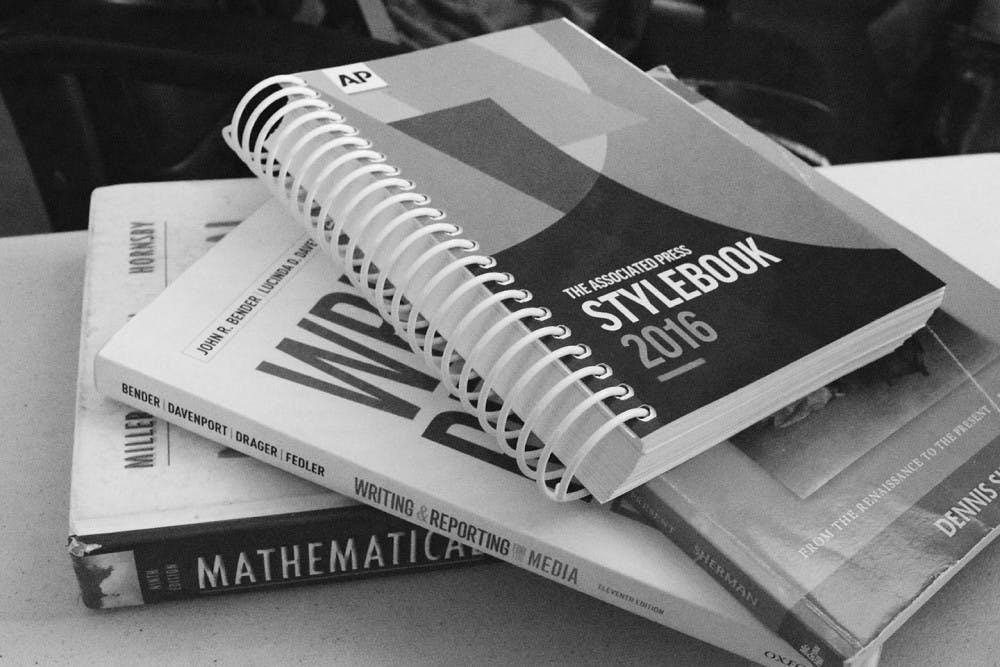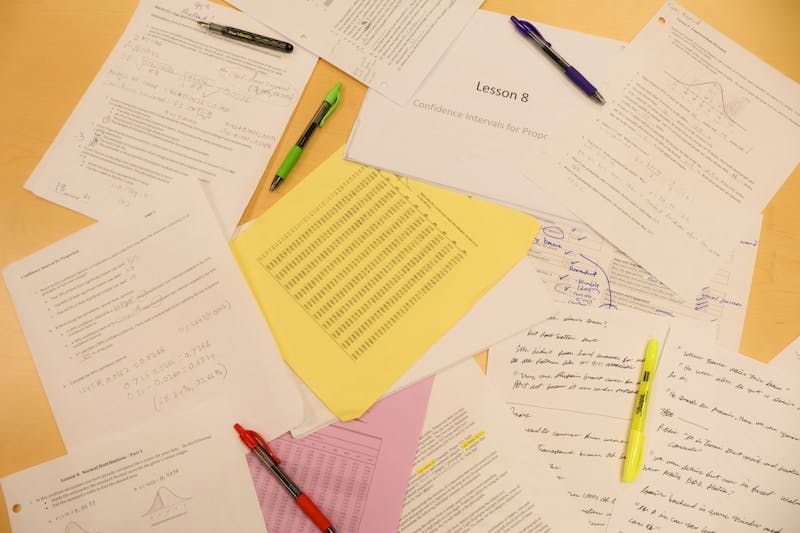We all know the expenses of college, right? Whether it be tuition, housing, a meal plan, supplies — all of it factors into how much money you need for the upcoming semester.
Some may rely on student loans, others through various forms of financial aid and some may even be getting the money from their parents. No matter where you get your money from, most people will still cringe at the sight of that credit card statement at the end of the month.
Yes, we all know the one. The one where it shows you spent more money than what you thought possible on textbooks. This semester alone, I spent more than $700 just on textbooks, not including other expenses.
I rented books where I could and bought them when I had to, but if you are in the same boat as me, books for your major are not cheap, no matter which option you choose. Why on earth are textbook costs so high?
Since 1977, the price of textbooks has risen nearly 1,041 percent, which is just over three times the inflation rate in that same time span, according to the Bureau of Labor Statistics in a 2014 study.
Nevertheless, these are often outrageous costs. While it is true that you can save money by shopping through sites like Chegg or Amazon, you will still have to dig out a nice chunk of change from your piggy bank in order to pay for your textbooks in time for the start of classes.
Nicole Allen, a spokesperson for the Scholarly Publishing and Academic Resources Coalition, said books are so high because students are “captive consumers” according to businessinsider.com.
Students need the books in order to do well in a class. You can try to borrow the book from the library or find a friend with the same course, but that is often very difficult.
Sometimes students will have to find a part time job just to pay for their textbooks. This eats into their study time and will affect their overall grade in a specific course.
The publishing companies have a virtual monopoly on the textbook market. Students can either buy their books in order to succeed, or skip out and face the consequences of a bad grade or even possibly failing the course, which will only cost students more money in the grand scheme of things.
There is truly no other solution in sight, unfortunately. The only way this could be solved is if Congress passed tighter anti-trust laws, which would only hurt the economy in the long run.
The only solution I see is looking for cheaper alternatives for the books you need. Do not skip out on buying them, but you should consider buying at least some of your more expensive textbooks as soon as you can.
The opinions expressed in this article are solely those of the writer and are not representative of The Slate or its staff as a whole



The Slate welcomes thoughtful discussion on all of our stories, but please keep comments civil and on-topic. Read our full guidelines here.